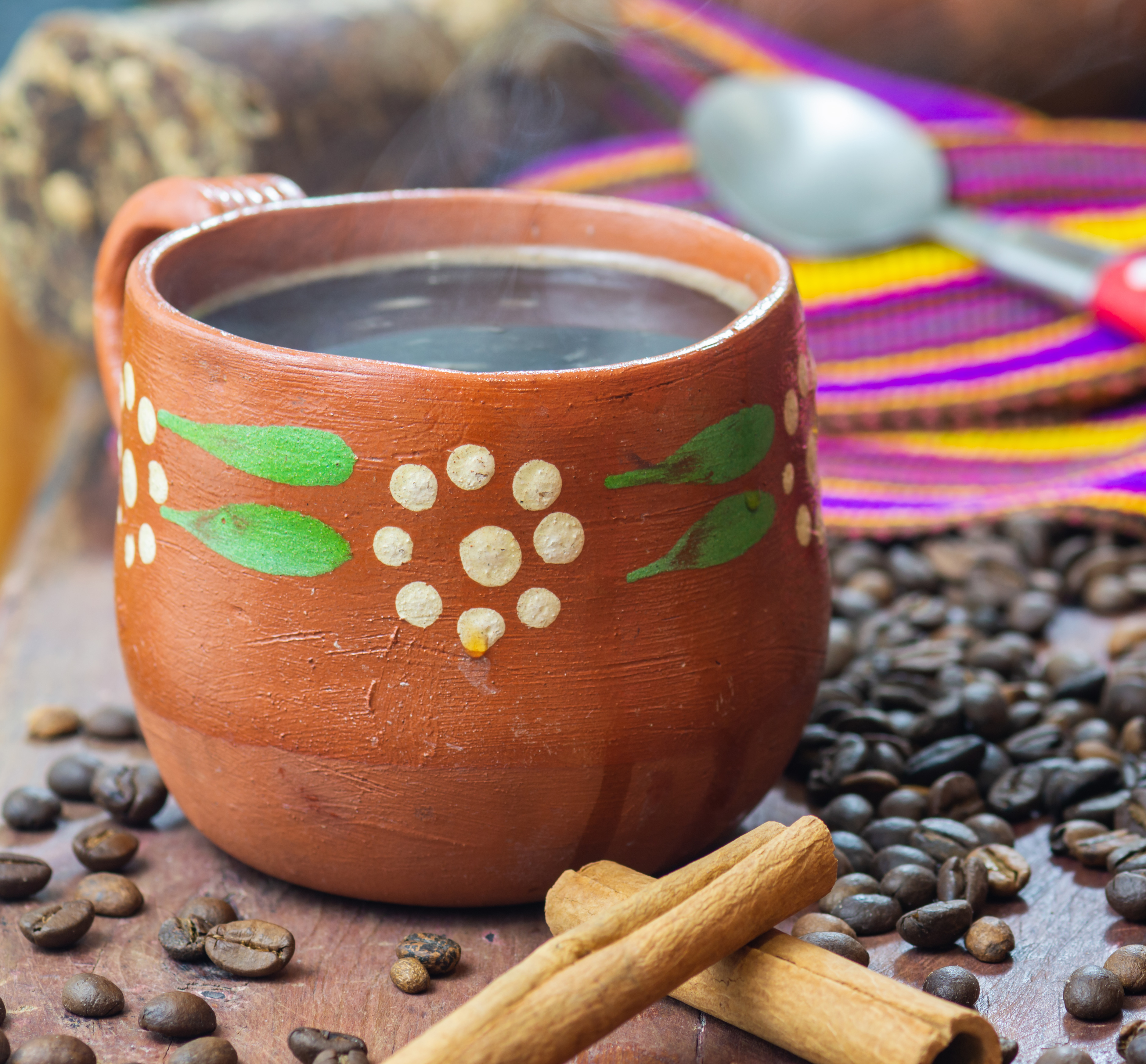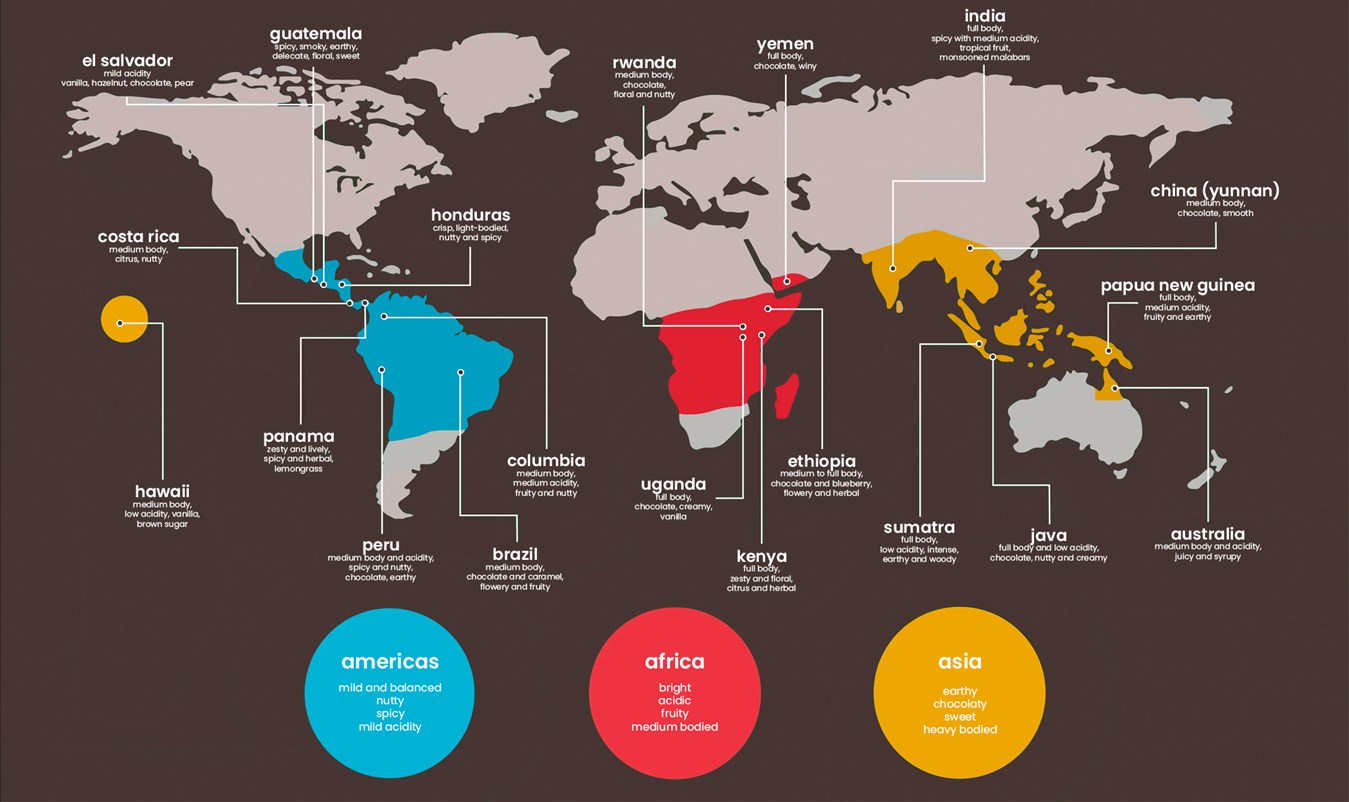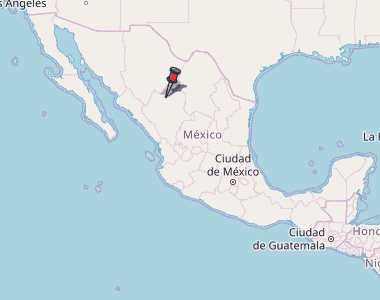Mexican Decaf – Finca Las Nieves Coffee Estate

The Coffee
Our Mexican Decaf debunks the misconception that Decaf is a coffee world pariah and swims against the flow of terrible decafs: spicy and sweet with chocolate and lemon flavours, a lively acidity, and a clean finish.
Our Mexican Decaf is produced at more than 1100 metres on the Finca La Laja estate, which the Sampieri family has run for generations.
The Mountain Water Treatment, which uses a filtering mechanism to eliminate caffeine molecules, leaves the beans 99.9% caffeine free and flavourful.
Oaxaca, Mexico, is a vibrant, cultural town with few stores and friendly people that is both historic and attractive. The Finca Las Nieves Estate is located on the outskirts of town, just a short walk from the ancient ruins. This historic area produces some of the greatest coffee in Mexico, with a high acidity level. This bean was chosen for its naturally low caffeine level without sacrificing flavour or body.
The Flavour
Decaf coffee is notorious for being watery and lacking in body and flavour. However, our Mexican Decaf is a veritable treat for the palate; dark chocolate emerges alongside peanut and sugar cane for a full depth of flavour with a clean, smooth finish. A coffee with a medium body that works nicely as an espresso or with milk.
A medium acidity cuts through the dark chocolate, a defined treat for the senses.
The aroma is well-balanced, with notes of delicious ripe cherries, malt, and toasted grain. In the cup, it's smooth, rich, and gently bright, with a subtle berry and malt taste that's complicated by hints of chocolate and cidery apple. The fruit-toned chocolate lingers in the long, flavour-saturated finish.

The History
Over the years, so-called coffee "connoisseurs" have scorned Decaf, stating it does not belong to the coffee family because it is not as tasty. We do, however, disagree. Our single-origin Mexican Decaf coffee is a superb cup of coffee, demonstrating how far decaffeinated coffee has come in the last century.
Coffee initially arrived in Mexico in the late 1700s, when it was grown on fields controlled by Europeans alongside mostly indigenous Mexican labourers. In the early twentieth century, a revolution began the process of transforming the status quo via agricultural land reform.
The most recent agricultural census reported 515,000 farmers, 85% of whom were indigenous Mexicans, and 95% produced less than three hectares. Indigenous and smallholder producers are the most vulnerable in the coffee sector, but the Mexican government is working with the National Institute of Indigenous Peoples (INPI) to help them.
In 1903, German trader Ludwig Roselis created decaf coffee. After discovering that a shipment of coffee beans had been mistakenly soaked in seawater and had lost the majority of their caffeine content, he began experimenting with other chemicals until he discovered the ideal approach for eliminating caffeine from coffee beans.
Many companies investigated alternate methods to decaffeinate coffee that did not utilise harsh chemical solvents that were regarded as harmful and had a substantial impact on the taste of the coffee. Today, there are two main methods for decaffeinating coffee: the Swiss Water Process and the Mountain Water Process, which rely on water and the osmosis process.

The Region
In the nineteenth century, Finca las Nieves, caressed by breezes from the Pacific Ocean far below, began producing some of the world's finest organic coffee.
Finca Las Nieves is resurrected today, producing excellent shade-grown "Altura" organic coffee while preserving its wonderful forest and wildlife history.
Finca Las Nieves has been producing perhaps the finest organic coffee available anywhere since the 19th century and has four coffee growing zones, namely Chiapas, Veracruz, Puebla, and Oaxaca.
Located far above the Pacific Ocean in the cloudy highlands, the farm is still active and producing excellent high mountain shade-grown "Altura" organic coffee. It takes pride in its agricultural methods, maintaining the forest's and fauna's unique heritage.
Finca las Nieves is a 1,000-acre coffee plantation in Oaxaca State, Mexico, located at an elevation of 4,000 feet. Aside from cultivating, harvesting, processing, and roasting coffee, the farm also rents out holiday homes on the property.
The Future of Mexican Coffee
Our venture into the Mexican coffee environment is encouraging, albeit only a sliver of what's going on the ground.
Quality is high, processing trials are numerous and successful, and the cooperative concept that launched Mexico's coffee production is still in place.
We hope that the country continues to recover from the leaf rust problem. We're interested in watching what happens with the numerous new partnerships being formed - may they all succeed in assisting farmers to achieve stability and prosper.
